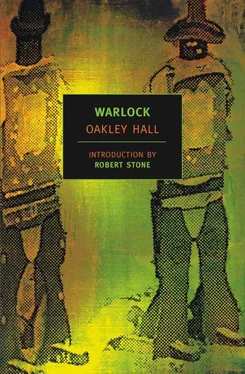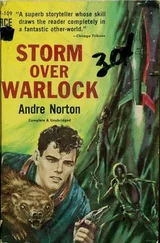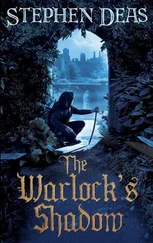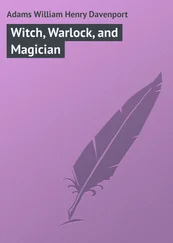1. JOURNALS OF HENRY HOLMES GOODPASTURE

August 25, 1880
DEPUTY CANNING had been Warlock’s hope. During his regime we had come to think, in man’s eternal optimism, that progress was being made toward at least some mild form of Law & Order in Warlock. Certainly he was by far the best of the motley flow of deputies who have manned our jail.
Canning was a good man, a decent man, an understandably prudent man, but an honorable one. He coped with our daily and nightly problems, with brawling, drunken miners, and with Cowboys who have an especial craving to ride a horse into a saloon, a Cyprian’s cubicle, or the billiard parlor, and shoot the chimneys out of the chandeliers.
Writing of Canning now, I wonder again how we manage to obtain deputies at all, who must occupy a dangerous and frequently fatal position for miserly pay. We do not manage to keep them long. They collect their pittance for a month or two, and die, or depart, or do not remain long enough even to collect it at all. One, indeed, fled upon the first day of his employment, leaving his star of office awaiting his successor on the table in the jail. We have had bad ones, too; Brown, the man before Canning, was an insolent, drunken bully, and Billy-the-kid Gannon gained a measure of fame and gratitude by ventilating him in a saloon brawl down valley in San Pablo.
Canning, too, must have known that some day he would be thrown up against one of that San Pablo crew, incur, prudent as he was, the enmity, or merely displeasure, of Curley Burne or Billy Gannon, of Jack Cade or Calhoun or Pony Benner, of one of the Haggin brothers, or even of Abe McQuown himself. I wonder if, in his worst dreams, it ever occurred to him that the whole down valley gang of badmen would come in against him at once.
There is no unanimity of opinion even now amongst those of us who believe them at least to be a regrettable element in Warlock. There are those who will say that of the lot only Cade is truly “bad,” and possibly Calhoun when in his cups; who will say that Luke Friendly may be something of a bully, and Pony Benner scratchy at times, but that Billy Gannon is, if you know him, a fine boy, Curley Burne a happy-go-lucky, loyal friend, and McQuown not actually an outlaw, since his forays after stock into Mexico are not really rustling.
However many good men die at their hands, or are driven out for fear of them, there will, it seems, always be their defenders to say they are only high-spirited, mischievous, fun-loving, perhaps a little careless — and even I will admit that there are likeable young fellows among them. Yet however many Saturday evenings are turned into wild carnivals of violence and bloodshed, however many cattle are rustled and stages held up, there will always be their champions to claim that they steal very little from their neighbors (I must admit, too, that Matt Burbage, whose range adjoins McQuown’s, does not blame McQuown for depredations upon his stock); that they confine their rustling raids to below the border; that the stages are robbed not by them, but by lonesomers hiding out here from true-bills further east; that, indeed, matters would be much worse if it were not for Abe McQuown to keep the San Pablo hardcases in hand, and so forth and so forth. And it may be so, in part.
McQuown is an enigmatic figure, certainly. He and his father possess a range as large and fertile as that of Matt Burbage, and, it would seem, could be ranchers as eminent and respected. Certainly they seem no more prosperous, in their lawlessness. Abe McQuown is a red-bearded, lean, brooding fellow, who has about him an explosive aura of power and directionless determination. He has protruding green eyes, which, it is said, can spit fire, or freeze a man at fifty feet; is of medium height, almost slight, with long arms, and walks with a curious, backward-leaning gait, like a young cadet, with hands resting upon his concho belt, his beard tipped down against his chest, and his green eyes darting glances right and left. Yet there is about him a certain paradoxical shyness, and a certain charm, and in conversation with the man it is difficult not to think him a fine fellow. His father, old Ike, was shot through the hips six months or so ago on a rustling expedition, is paralyzed from the hips down, and is, reportedly, a dying man. Good riddance it will be; he is unequivocably a mean and ugly old brute.
I say, Deputy Canning must have known the clash would come. In retrospect I suffer for him, and at the same time I wonder what went on in McQuown’s cunning and ruthless mind. What kind of challenge to himself did he see in Canning? Merely that of one strong man as a threat to the supremacy of another? The two were, to all appearances, friendly. Certainly Canning never interfered with McQuown, or with McQuown’s. He was too prudent for that. Canning was widely liked and respected, and a man as intelligent as McQuown must have had to take that into consideration, for is there a man of stature anywhere who does not wish to be the more admired? And will any such man commit a despicable act without attempting to color it in his own favor?
I will put down, then, what I think: that McQuown carefully chose the time, the place, the occasion; that this was deeply premeditated; that McQuown is not merely high-spirited, mischievous, careless, that he is not simply a spoiled and willful youth; that, further and specifically, McQuown was jealous of what his henchman Billy Gannon had won for himself by dispatching an obnoxious bully of a deputy, and sought to repeat a winning trick.
About a month ago, Canning buffaloed a young Cowboy named Harms. It was a Saturday night and Harms was in town with a month’s pay, which he promptly lost over Taliaferro’s faro layout. With whisky under his belt and no more money in his pocket, and so nothing to do for excitement, Harms vented his feelings by proceeding to the center of Main Street and firing off his six-shooter at the moon — for which he is not much to be blamed. Canning, however, accosted him, for which the deputy was not to be blamed either, and, at some danger to his person, grappled with Harms in order to relieve him of the offending Colt’s. In the end he had to clout the boy over the ear with the weapon to quiet him, which is acceptable practice. Canning then bore Harms off to see Judge Holloway, who presented him with a night’s accommodation in the jail. Released the next morning, Harms started back down valley, but was thrown from his horse en route, was dragged, and died. No doubt his death was in good part brought about by the buffaloing he had received.
It was too bad. We felt badly, those who thought of it at all, and I am sure Canning was as sorrowful as anyone. Still, in this rough-and-tumble corner of creation, such things will happen, and are usually considered no more than too bad.
I think there is some East Indian doctrine to the effect that our fate is shaped in the most inconsequential of our acts, and so it was with poor Canning. Enter, then, a further minister of providence, a week or ten days later, in the person of Lige Harrington, a braggart, blow-hard fellow more ridiculous than dangerous, but a minor hanger-on of McQuown’s. Harrington announced himself a bosom friend of Harms, and his avenger. Harrington was patently seeking to make himself a reputation at Canning’s expense, and to give himself prestige among the San Pabloites. Well primed with liquid courage, Harrington sought Canning’s demise, but was dispatched in short order, crated, and immured upon Boot Hill.
Again, I think, no one was much concerned. This sort of asinine bravado must be the bane of any peace officer’s existence. Yet I wonder if Canning did not have a fearful vision of how Right carries the seeds of Wrong within it, and Wrong its particular precariousness for a man in his position. For what are Right & Wrong in the end, but opinion held to? Certainly there were men who said that Canning had murdered the unfortunate Harms, and so had murdered Harrington his avenger, bad rubbish or not. Is not the semblance of guilt, however slight the tinge, already a corruption?
Читать дальше








